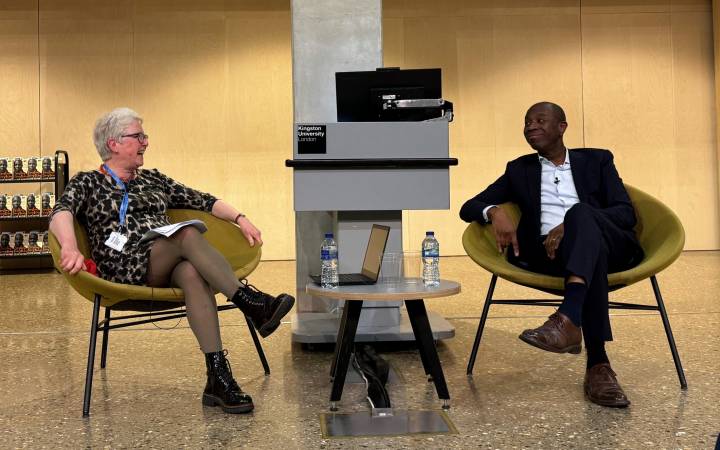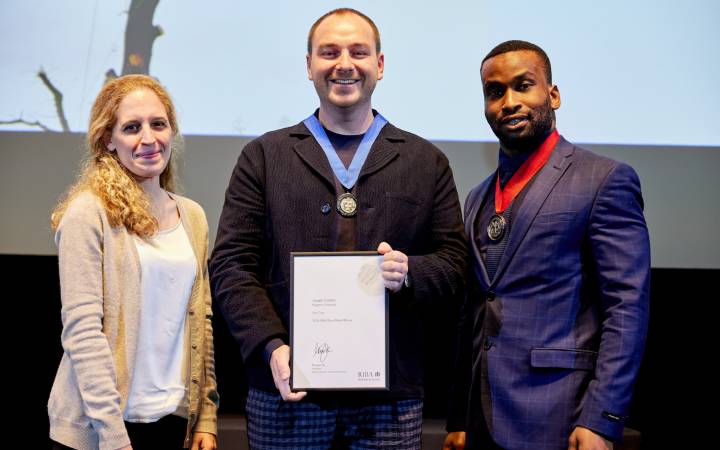New physician associates an asset to hospital medical and surgical teams, study from Kingston University and St George's, University of London finds
Posted Wednesday 13 February 2019

A first study into the impact of a new type of health worker in NHS hospitals, physician associates, has found they benefit medical and surgical teams and their patients, according to research by Kingston University and St George's, University of London.
Researchers found physician associates safely support the workloads of clinical teams and help provide team continuity, as well as positively contributing to patients' experience and journeys.
The research, funded by the National Institute for Health Research and published in BMJ Open, was led by Vari Drennan, Professor of health care and policy research at the Faculty of Health, Social Care and Education, run jointly by Kingston and St George's.
The study, which also included academics from the University of Birmingham, University of Surrey and Royal Holloway, University of London, as well as NHS managers and patient representatives, set out to investigate the use, acceptability and impact of physician associates within a hospital setting in a sample of six acute care hospital organisations in England.
Physician associates are medically trained generalist healthcare workers who train at postgraduate level and undertake medical histories, physical examinations, investigations, diagnosis and treatment as agreed with their supervising doctor. They are also able to carry out medical procedures, such as taking arterial bloods and taking and interpreting electrocardiograms but are currently not allowed to prescribe medicines or to order x-rays. They work in primary care in the NHS to support GPs, as well as working in hospitals.
Researchers examined the role of physician associates working in 13 adult and paediatric specialities, including emergency departments, while also interviewing medical staff including consultants, managers and nurses, as well as patients and relatives.
The physician associates were mainly deployed in hospitals to undertake inpatient ward work during weekday hours. The findings showed they positively contribute to the continuity of staffing and knowledge within their medical or surgical team, as well as supporting patients throughout their hospital stay, inducting junior doctors and supporting their teams' workload. This released doctors to attend to more complex cases and training.
"We found that the relatively new role of physician associate can make a valuable and flexible contribution to medical and surgical teams in hospital and they were found to be acceptable, appropriate and safe members of the teams by the majority of doctors, managers and nurses," Professor Drennan, said. "Patients responded very positively to the physician associates, who are likely to be a constant presence on a ward and therefore easy to approach, following up items from the doctors' ward rounds as well as explaining care plans and decisions to patients and relatives.
"A recent announcement by the Secretary of State for Health and Social Care that the role will be regulated by statute has the potential to allow them to prescribe medicines and order ionising radiation, both of which would strongly enhance their contribution in hospital teams," she added.
Minister of State for Health Stephen Hammond said: "This research highlights the invaluable role physician associates play in the NHS, supporting doctors to deliver safe, high quality care to patients. Our decision to regulate physician associates is not only a recognition of this enormous contribution, but will empower them to work to their full potential and place them on a firm foundation for a long and successful career in the NHS."
Contact us
General enquiries:
Journalists only:
- Communications team
Tel: +44 (0)20 8417 3034
Email us



